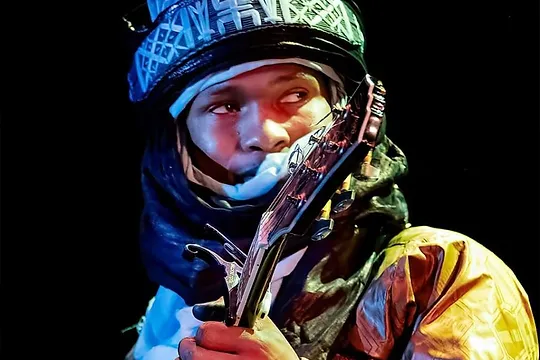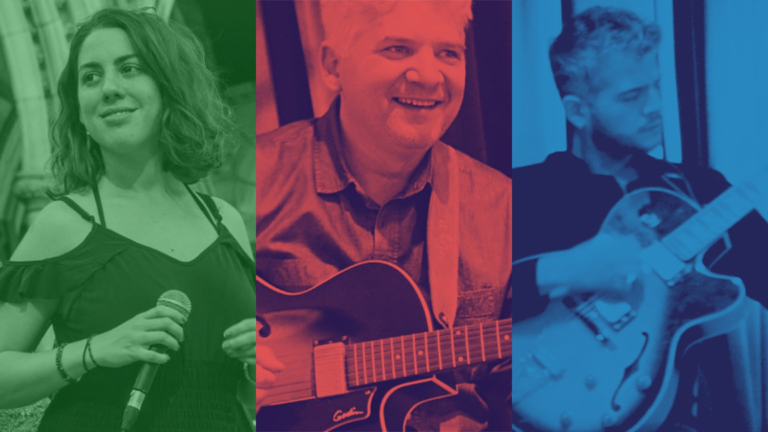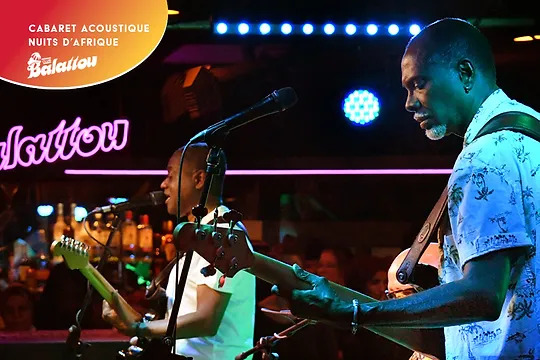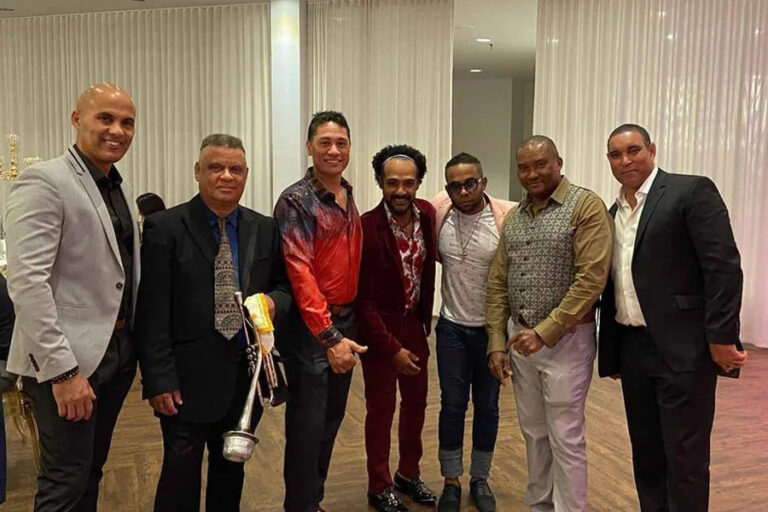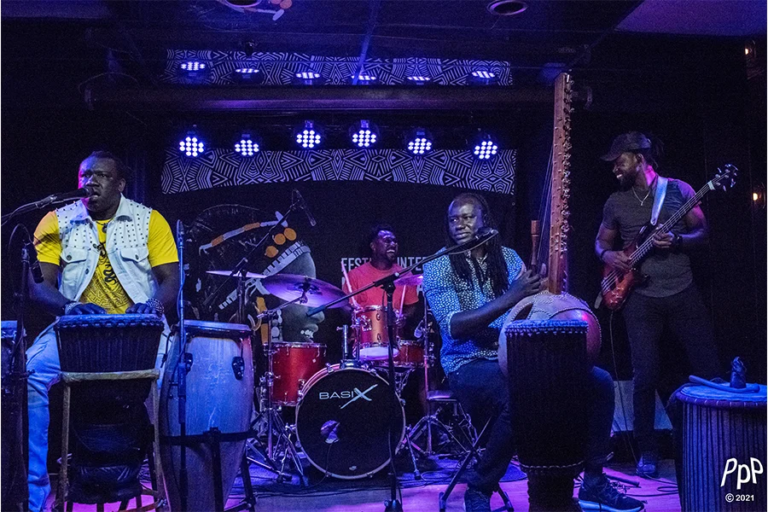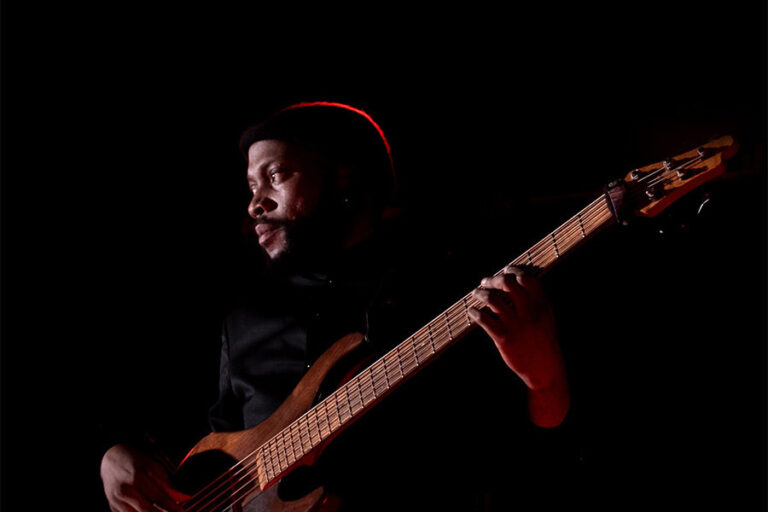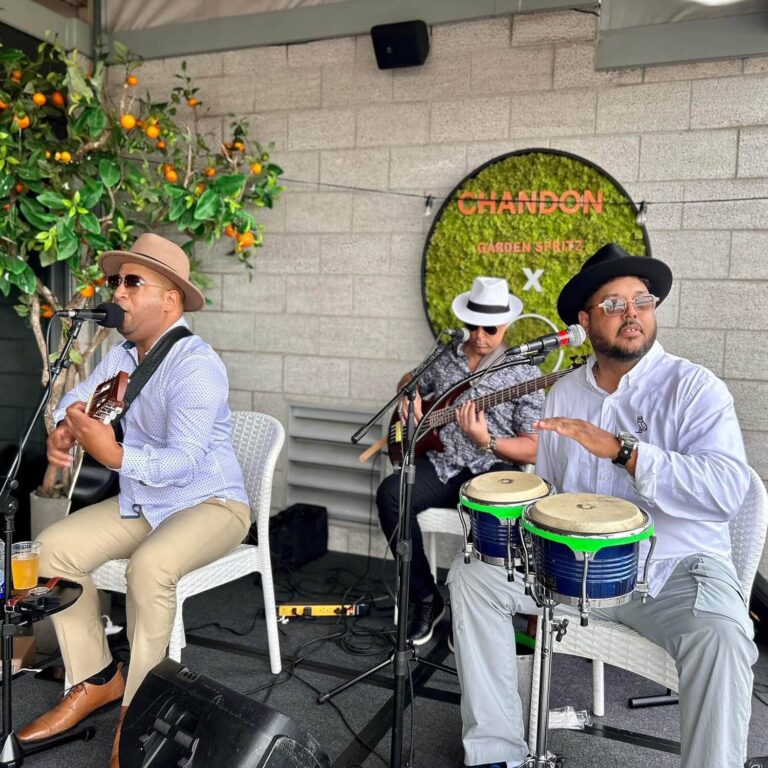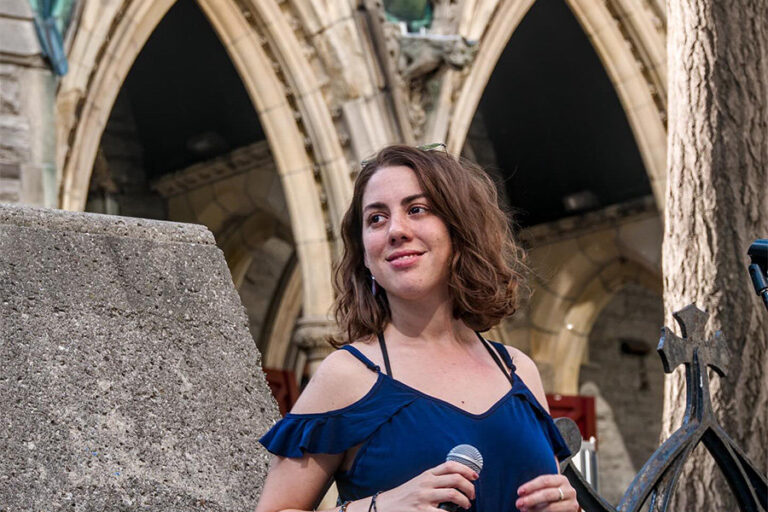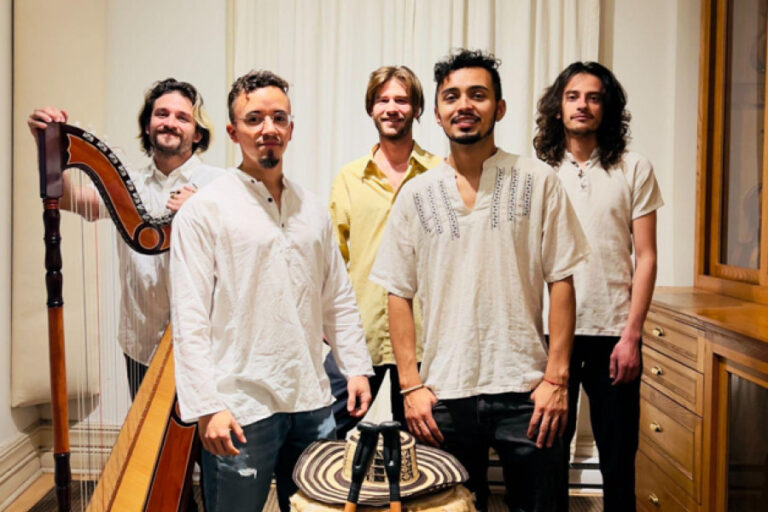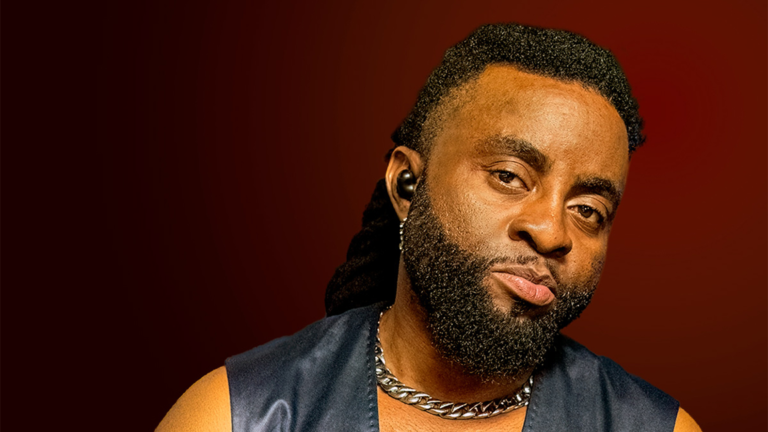Boubé, avec ses rythmes des nomades berbères du Sahara central, a littéralement séduit le public comme les spécialistes lors de la dernière édition des Syli d’or de la musique du monde, où il est arrivé en 2e position. Il faut dire que Boubé propose «ce qu’aucun autre Montréalais sur la scène musicale ne propose : de l’authentique blues désertique» (Le Devoir, 2024). À la guitare, acoustique et électrique, aux percussions et à la batterie, l’auteur, compositeur et interprète a travaillé avec Bombino et Mdou Moctar, les figures les plus respectées de la musique Touareg. Aux confluents de mélodies méditatives et de sons plus rock, son album Issaktan est sorti en 2023.
Boubé, with its rhythms of the Berber nomads of the central Sahara, literally seduced audiences and specialists alike at the last edition of the Syli d’or de la musique du monde, where it came 2nd. Boubé offers “what no other Montrealer on the music scene offers: authentic desert blues” (Le Devoir, 2024). On guitar, acoustic and electric, percussion and drums, the author, composer and performer has worked with Bombino and Mdou Moctar, the most respected figures in Touareg music. At the crossroads of meditative melodies and rock sounds, his album Issaktan was released in 2023.
POUR ACHETER VOTRE BILLET, C’EST ICI!
Ce contenu provient du Club Balattou et est adapté par PAN M 360.
